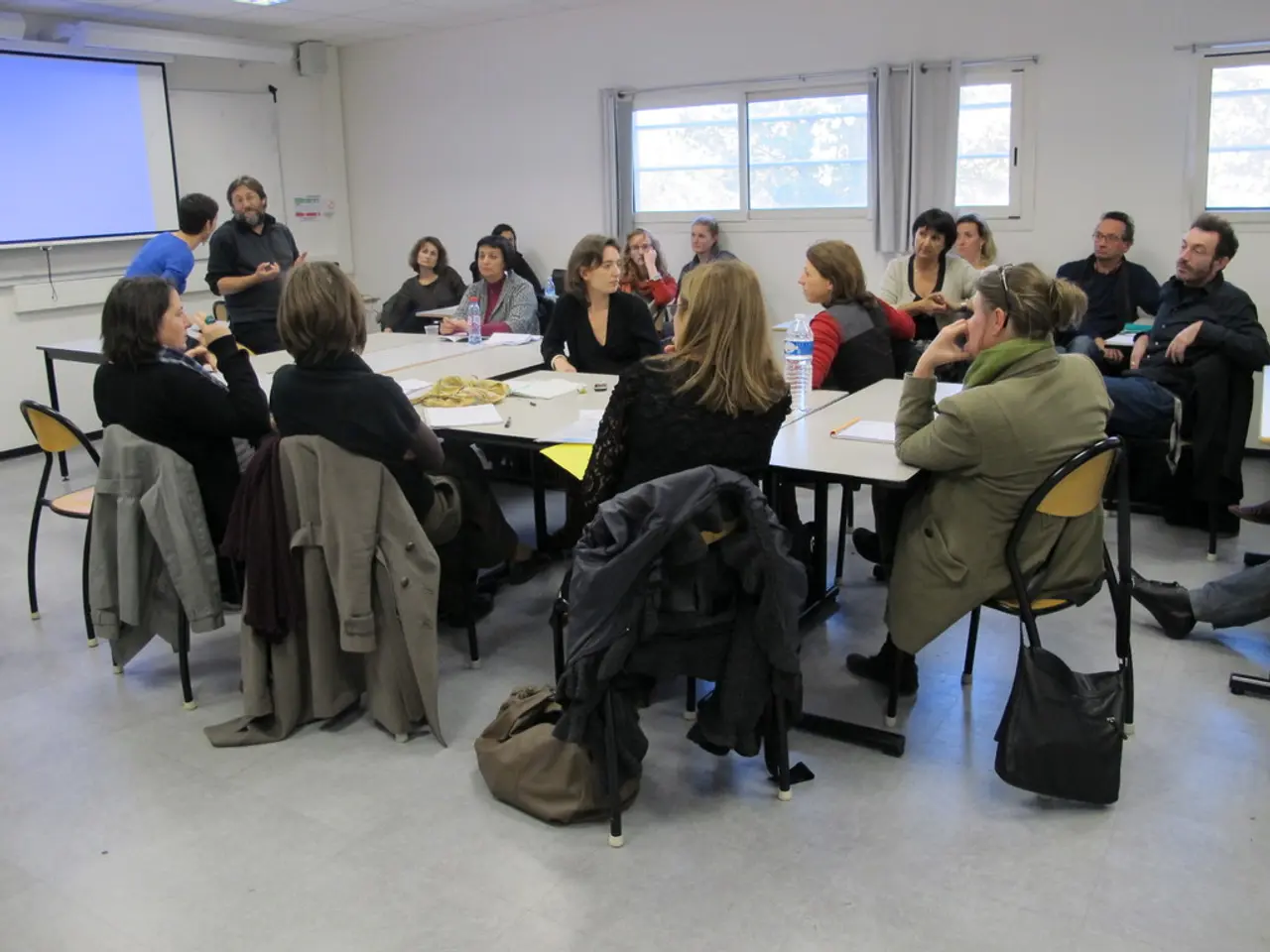Global Updates |
Israel is currently engaged in discussions with South Sudan about the potential resettlement of Palestinians from the Gaza Strip. These talks aim to enable Palestinians to leave Gaza, with Israeli officials describing it as "voluntary migration" or relocation, although the exact stage of negotiations remains unclear and no agreements have been reached yet [1][2][4][5].
South Sudan publicly denies any official agreement or talks on this matter, calling reports "baseless," but several sources reveal that senior South Sudanese officials have privately discussed the proposal with Israeli representatives [2]. An Israeli delegation is reportedly planning to visit South Sudan to assess the feasibility of setting up camps for Palestinian refugees there [1][5].
The proposal has been met with concerns by South Sudanese officials due to the financial and logistical burden of hosting a large number of Palestinian refugees [2]. Israeli Prime Minister Benjamin Netanyahu supports this plan as part of a broader effort to facilitate the emigration of Gazans, linking it to a vision previously suggested by former US President Donald Trump [1][3].
However, the plan has been widely rejected by Palestinian leaders, human rights groups, and much of the international community, who view it as a form of forced displacement violating international law [1][4]. Palestinians characterize such proposals as reminiscent of the 1948 Nakba, fearing a new catastrophe [4].
The discussions are part of a wider effort by Israel to facilitate mass emigration from the Gaza Strip, left in ruins by a 22-month offensive against Hamas. Egypt is deeply opposed to plans to transfer Palestinians out of Gaza, fearing an influx of refugees into its own territory [6].
Meanwhile, South Sudan, in need of allies, may see a deal with Israel as a potential inroad to the Trump administration [7]. Israel has floated similar resettlement proposals with other African nations [8]. South Sudan, plagued by corruption and reliant on international aid to help feed its 11 million people, has already accepted eight individuals swept up in the administration's mass deportations [9].
The main opposition leader in South Sudan was placed under house arrest this year, posing a threat to the fragile peace deal reached seven years ago [10]. South Sudan is also struggling to recover from a civil war that broke out after independence, killing nearly 400,000 people and plunging pockets of the country into famine [11].
The State Department stated that decisions on the issuing of visas are made "in a way that prioritizes upholding the highest standards for U.S. national security, public safety, and the enforcement of our immigration laws." The Trump administration has pressured a number of countries to help facilitate deportations [12].
If implemented, the plans would involve transferring people from one war-ravaged land at risk of famine to another, raising human rights concerns [5]. Many Palestinians fear that Israel will never allow them to return if they are resettled permanently from Gaza [4]. Joe Szlavik, a U.S. lobbyist working with South Sudan, has been briefed about the talks and mentioned an Israeli delegation planning to visit South Sudan to look into the possibility of setting up camps for Palestinians [13].
In summary, while multiple sources confirm ongoing discussions between Israel and South Sudan regarding the possible resettlement of Palestinians from Gaza, South Sudan denies official negotiations, and the plan remains highly controversial and unconfirmed as finalized [1][2][4]. The potential resettlement plan, if carried out, could have significant implications for both the Palestinians and South Sudan, raising concerns about human rights, international law, and regional stability.
- The Palestine resettlement proposal, under discussion between Israeli officials and South Sudanese representatives, has garnered extensive criticism from human rights groups and the international community, who view it as a violation of international law and potential forced displacement.
- Amidst ongoing negotiations, South Sudan's political environment is marked by corruption, economic struggles, and recovery from civil war, raising concerns about the country's ability to manage a potential influx of Palestinian refugees.
- In light of the Trump administration's pressure on countries to help facilitate deportations, South Sudan has already accepted eight individuals swept up in these mass deportations, hinting at possible alliances between the two nations.
- The potential resettlement plan, if implemented, would involve transferring Palestinians from Gaza (a war-torn region at risk of famine) to South Sudan, sparking human rights concerns and further complicating the already fragile political and economic landscapes of both nations.








